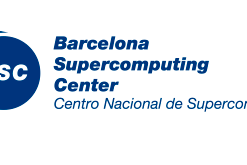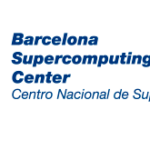Context And Mission
The urgent need for decarbonization has brought about a shift towards hydrogen and hydrogen-enriched fuels as a solution for the future cleaner, and low-carbon energy systems. However, meeting the EU targets for reduced emissions and carbon dependency poses new challenges for energy-intensive industrial processes like steel manufacturing or power generation. Power-to-X (P2X) technologies are being developed to produce “green hydrogen” from renewable electricity, which can then be used to improve these processes and reduce their carbon footprint and dependence on fossil fuels. In fact, given the still low energy density of batteries, green hydrogen is currently the only feasible alternative to decarbonize industries where this parameter is critical, such as as commercial aviation. Hydrogen-based technologies are a crucial component of the energy transition and require digital tools and advanced software to speed up their deployment in the market.
Green hydrogen, which is generated from water and renewable electricity in an electrolyzer, can be stored and distributed for use in power generation or electrochemical systems like fuel cells. Among the most efficient hydrogen production systems, Solid Oxide Electrolizer Cells (SOECs) operating at high temperatures have shown high potential to generate hydrogen at moderate and large scales. These cutting-edge technology involve numerous physical and chemical phenomena occurring at various scales, ranging from thermo-mechanical-fluidic at the cm-scale to electrochemistry at the nanoscale. The multi-physics and multi-scale nature of these devices makes them extremely challenging from a simulation standpoint, but the outputs of the simulations are highly valuable for predicting and designing real-world operating systems.
This Ph.D. opportunity offers a chance to work on predicting the mechanical behavior of SOEC technology with a focus on developing a thermo-mechanical solver and constitutive modeling of the system. The research will involve understanding the thermo-mechanical properties of SOECs and developing a model to accurately predict the thermal stresses under service conditions for the critical cell components. The developed framework will be integrated into Alya, an HPC-multiphysics code, coupling it with the thermo-electro-chemical solver. The successful candidate will work with a team of experienced researchers to further advance the SOECs field and contribute to sustainable energy technologies development. The model developed by the candidate will be verified and validated against the experimental data gathered from the prototype cells provided by the cutting-edge equipment of project partners. The final outcome of this project involves the candidate working on developing infrastructure for generating Digital Twins that use Artificial Intelligence (AI) and physics-based reduced-order models to process data from the full description of the SOEC system. The model developments will be conducted in collaboration with the Universidad de Sevilla, and interactions with the solid mechanics group there are expected.
Key Duties
- Implement advanced constitutive material models.
- Develop a thermo-mechanical solver.
- Coupling of the thermo-electro-chemical with a thermo-mechanical model.
- Predict the thermal stresses of the critical cell components.
- Interact with the different partners of the projects to carry our collaborative research.
- Contribute to scientific publications and reporting to different National and EU projects the researcher will be involved in.
Requirements
Education
- The candidate should hold a master’s degree with strong background in computational mechanics.
Essential Knowledge and Professional Experience
- Knowledge of solid mechanics and thermodynamics are expected.
- Knowledge of constitutive materials models are desirable.
- Knowledge of numerical methods.
- General knowledge on computer science and programming languages.
Competences
- Fluency in English is essential.
- Strong analytical skills.
- Ability to work independently and within a team.
- Good communication and team-work skills to work in a multidisciplinary team.
Conditions
- The position will be located at BSC within the CASE Department
- We offer a full-time contract, a good working environment, a highly stimulating environment with state-of-the-art infrastructure, flexible working hours, extensive training plan, restaurant tickets, private health insurance, support to the relocation procedures
- Duration: Open-ended contract due to technical and scientific activities linked to the project and budget duration
- Salary: we offer a competitive salary commensurate with the qualifications and experience of the candidate and according to the cost of living in Barcelona
- Starting date: ASAP


